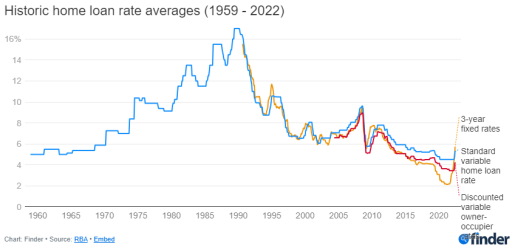oz_mark
Enthusiast
- Joined
- Jun 30, 2002
- Posts
- 22,116
Whether putting up taxes would reduce inflation, would depend on what the government of the day did with the money. So, the only way that would work is iof the government increased taxes, but not spending. And announce a giant surplus. Or thay could cut spending, and leave taxes the same.
Raising taxes is also more time consuming, as it requires legislative change. Raising the GST would be even more problematic, as it requires the agreement of the states.
But realistically, the RBA doesn't have other tools at its disposal.
Raising taxes is also more time consuming, as it requires legislative change. Raising the GST would be even more problematic, as it requires the agreement of the states.
But realistically, the RBA doesn't have other tools at its disposal.














